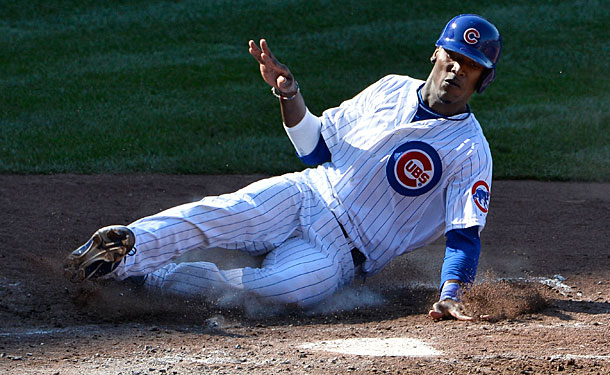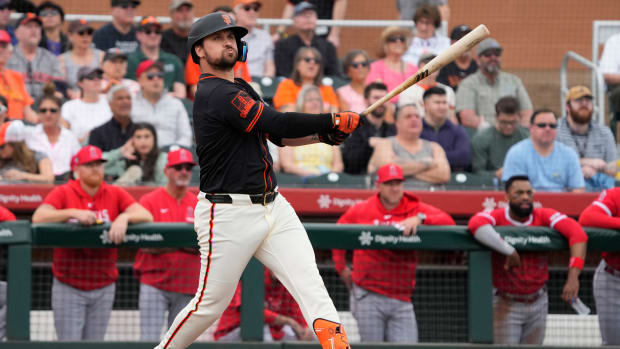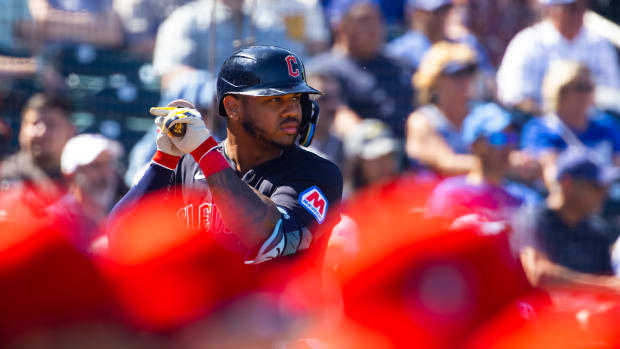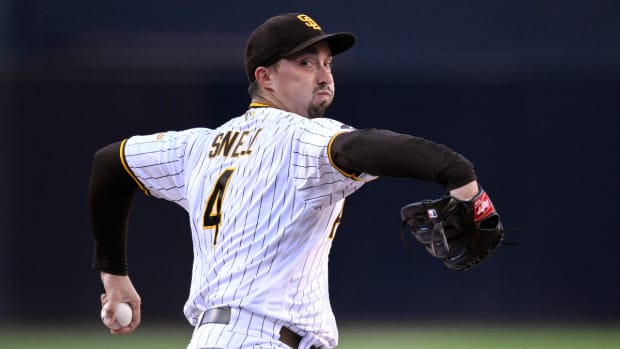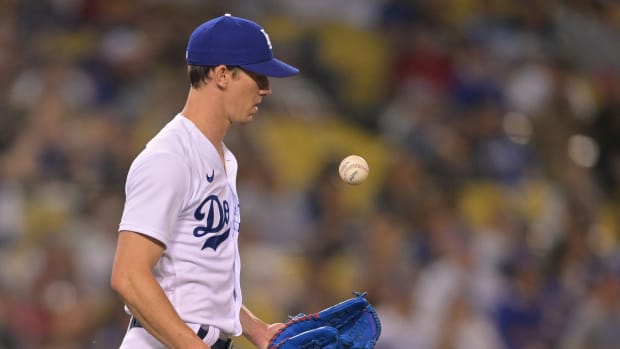Wait 'Til Next Year: Chicago Cubs
Junior Lake was one of the few young players to be a bright spot for the Cubs this season. (Brian Kersey/Getty Images)
While so much of our day-to-day attention in this space is devoted to the teams still battling for playoff spots, we feel as though it’s only fitting to acknowledge the teams that have been mathematically eliminated from contention, giving them a brief sendoff that should suffice until Hot Stove season. Thus, the Wait ‘Til Next Year series.
Current Record: 60-82 (.423, 5th in the NL Central)
Mathematically eliminated: Sept. 8
What went right in 2013: The best things that happened for the Cubs in 2013 did not happen on the field in the major leagues. The organization's top accomplishment was finally trading Matt Garza and Alfonso Soriano, landing a large package of prospects headlined by third baseman Mike Olt from the Rangers for the former and gaining some financial flexibility from the Yankees in the latter. Chicago's front office also did well in flipping platoon outfielder Scott Hairston to the Nationals for pitching prospect Ivan Piñeyro.
At the minor league level, the Cubs saw strong seasons from top prospects Albert Almora, Javier Baez and Jorge Soler. Only Baez, who in June became the second Florida State League player ever to hit four home runs in one game, has reached Double-A, but all three had solid seasons and are headed to the Arizona Fall League. The Cubs also supplemented that trio with another big bat via the second pick in the draft, which yielded University of San Diego third baseman Kris Bryant, who could beat all three to the majors.
At the major league level, the Cubs did get some strong performances, but not from the players they most wanted to deliver them. Travis Wood led the rotation and made the All-Star team, but his weak peripherals and low BABIP indicate that his season was not meaningful step forward. Nate Schierholtz has nearly doubled his career home run total with 20 thus far, but that was the only improvement in his performance. Kevin Gregg had a nice comeback as the team's closer, but he's 35 and no other team had enough faith in his performance for Chicago to cash it in with a trade. The Cubs also got many strong performances from the journeymen on their bench, led by catcher Dioner Navarro, who has hit .305/.369/.515 and had a three-homer game in late May.
At least one prospect showed he could perform at the major league level: Junior Lake, who made his debut after the All-Star break and has hit .309/.350/.468 in 201 plate appearances since while playing the outfield exclusively. Lake is a player with a lot of tools (power, speed, arm) who has confounded scouts to this point in his career. It remains to be seen what the Cubs have in him, but he was certainly a surprising highlight in an otherwise dismal season.
What went wrong in 2013: At the end of 2012, there was hope that the Cubs could turn the corner this season by having prospects Anthony Rizzo, Brett Jackson, Welington Castillo and Josh Vitters graduate to the majors where they could join forces with similarly youthful shortstop Starlin Castro. Instead, all five of those players took a step backward in 2013, and none was as significant as the one taken by Castro, whom the Cubs signed to a seven-year extension late last year.
Every aspect of the 23-year-old Castro's game declined in 2013, his fourth major league season. He struck out more, walked less, hit for less power, less average, stole just eight bases in 14 attempts, gave back the gains he made in the field and continued to display a lack of concentration. As a result, he went from a two-time All-Star to a replacement-level player, validating the concerns of every frustrated Cubs fan who hoped he would be traded before he was signed to a long-term deal.
Centerfielder Jackson was alternately hurt and unproductive at Triple-A, failing to earn a call-up even after rosters expanded. Third baseman Vitters also battled injuries and failed to see any major league action, though he did hit in the 28 games he was healthy enough to play for Triple-A Iowa.
Back in the majors, catcher Castillo proved to be an excellent defender, but showed none of the power that was supposed to be part of his game. After 397 plate appearances he is still one home run shy of the five he hit in 190 PAs last year.
The least problematic of the quartet was Rizzo, who has hit 21 home runs -- including the third-longest in the majors this season -- and driven in 73 runs while playing a strong first base. His drop in production could be blamed mostly on bad luck on balls in play (.255 BABIP). Still, a .232/.326/.425 line was not what Chicago was looking for from a hitter it gave a seven-year extension to in May in the hope that he could anchor its lineup for the remainder of the decade.
Elsewhere, Edwin Jackson, signed to a four-year, $52 million deal over the winter that made him the team's highest-paid player, proved to be its worst starting pitcher, posting a 4.91 ERA over his first 27 starts and leading the league in losses. Closer Carlos Marmol finally pitched himself out of Chicago, posting a 5.86 ERA. The player signed to replace Marmol last offseason when that inevitable implosion happened, veteran Japanese closer Kyuji Fujikawa, had Tommy John surgery in June, effectively wiping out his ability to make good on his two-year contract. Meanwhile, good-field, no-hit second baseman Darwin Barney took the second part literally, dropping his overall value to replacement level with a .213/.269/.318 line.
Overall outlook:






























